How to Prep for Hurricane Season
Hurricanes are known to leave behind devastating consequences, especially for those who weren’t prepared beforehand. They not only can rip families apart based on serious injury and death, but can completely obliterate homes in just a matter of minutes. While preparing your home for a hurricane may incur additional expenses as you spend a significant amount of money upfront, not having the right insurance policy when faced with the damage could end up costing you a whole lot more. In most cases, it’s a separate policy, much like flood insurance, but it can certainly be worth it if your location is prone to experiencing hurricanes each year.
Here’s more on hurricane preparedness steps you should consider before hurricane season.
“Prepare Your Family For Survival” by Linda Loosli
Have an Evacuation Plan
Each family should have an emergency plan in place. It should be based on the most common disasters and emergencies experienced in the location where you live. As part of that plan, you should include an evacuation plan that outlines various evacuation routes and possible destinations.
Local authorities often designate an evacuation zone and they try to provide emergency alerts that notify you of a hurricane watch and hurricane warning as the storm gets close. Don’t wait until the last minute to decide what the best route is for you to take to get out of town quickly. Plan your evacuation route well in advance, especially if you live in a mobile home or other temporary housing. Ensure that everyone in your family is on board with where you should meet if you’re all in different locations. We are all busy, so the hurricane may reach land while family members are at school, work, shopping, or at church. Getting back together MAY be one of your toughest challenges. Remember that public transportation may not be running during the storm if that’s how family members typically get around.
Part of your emergency plan should designate where your nearest shelter is in town and how to get in touch with any family members who live further away from the danger area to see if they’d be willing to accommodate your family during the evacuation period. The key is to find a safe place for you and your family members. In case you missed this post, 12 Types of Natural Disasters
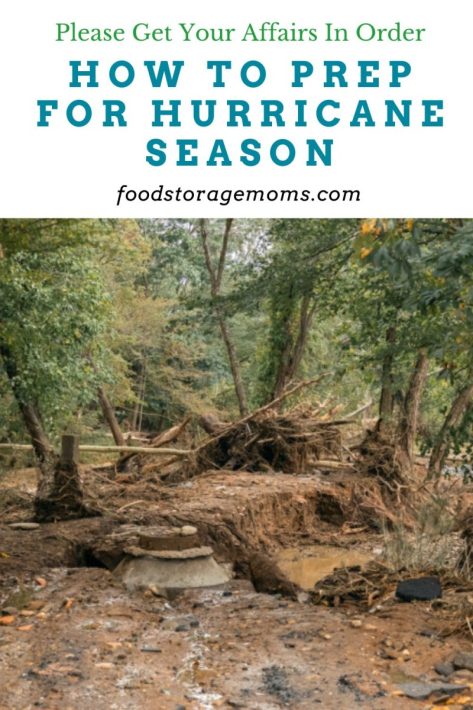
Protect Your Home
When hurricane-speed winds begin to blow through your area, those winds can take harmless objects and turn them into powerful weapons that cause significant devastation to your home. That is especially the case if those landscaping items create an opening in your windows, doors, or roof. While protecting your house from a hurricane, you’ll have some expenses you’re not pleased with, I encourage you to consider doing it in phases.
Cut Down Weak Branches and Trees
The last thing that you want is for a leaning tree or a huge branch to come crashing down on your home or on top of your car that’s parked out in your driveway. Tree removal can be costly upfront, but it could ultimately cost you more if you overlook it. Also, be sure to remove branches that are weak or hanging low, and maintain your shrubs by keeping them trimmed and in good shape.
Consider Tempered Glass
Sliding glass doors are highly vulnerable during a hurricane. With tempered glass in place, you’ll have one less thing to worry about.
Storm Proof All Exterior Doors
Every exterior door that’s around your home should be more secure by having a minimum of three hinges, along with a deadbolt of no less than one inch. Hurricanes have high winds that can be very damage-prone, but the heavy rain that accompanies the storm can be equally damaging.
Related: Winds What You Need to Do Before They Hit
Install Storm Shutters
To keep your windows from breaking, consider installing storm shutters that will provide them with much-needed protection before hurricane season arrives. If this option is already a little too late or costs more money than what you can currently afford, you can also nail plywood panels to the frames of your windows as a temporary solution.
Replace Old Garage Door
It may be time to replace your old garage door with an updated one that offers impact protection and can withstand extreme wind pressure. If high winds can find an opening in your home, especially with an old garage door, it can cause significant damage to other areas of your home.
Repair Loose Shingles
Ensure your roof is prepared for heavy winds and rain by using ring-shank nails and cement to secure any loose shingles.
Note that one of the most common challenges for families during a hurricane is experiencing a power outage. Downed power lines are not only dangerous, but are a sign that you won’t have access to ATMs for extra cash, but all those appliances and other electronic devices won’t work.
Avoid Using Gravel or Rock Landscaping
Those of you who live along the coast should consider using mulch as landscaping around your home. Rock and gravel landscaping only provides hurricane winds and raging waters with harmful projectiles that can break through your windows.
Also, make sure your outdoor furniture is properly secured. You don’t want it to get damaged or cause damage to your home if they become projectiles.
Anchor Your Boat or Trailer
For those of you who have a boat or trailer sitting out in your driveway, you need to have some way to anchor it down so that it doesn’t decide to move in with you along with the rising storm surge. Additionally, review your insurance policy to ensure that your boat and trailer are adequately covered.
Stock Up On Emergency Supplies Ahead of Time
Don’t wait until the storm is only a day or two out and then decide to head to the store for some last-minute supplies and meals. Everyone else will have the same idea, and you may not find what you’re looking for. Ensure you have a 3-day supply of non-perishable food that doesn’t require cooking.
The same goes for drinking water. According to the American Red Cross, you’ll need at least one gallon of water per person per day. I feel we need 4 gallons of water per person per day; I feel more comfortable with that amount since we not only need water for hydration, but also for cooking, personal hygiene, and limited laundry chores. Here are a few other items to have in your emergency kit:
- Flashlight with extra batteries
- Portable crank weather radio
- First aid kit
- Basic tools
- Extra building materials (emergency house repair)
- Medications you take consistently
Go Over Your Insurance Policy
Most insurance policies don’t cover flood damage, which is a significant drawback for those living in areas prone to hurricanes. Be sure to review your insurance policy and add any additional coverage, including wind protection and wind-blown water damage, with your insurance professional. Keep in mind that you can ask your insurance company if you are eligible to purchase flood insurance.
It’s particularly alarming in California and many other areas in the United States, where insurance companies are dropping clients due to crime, excessive fire damage, or extreme flooding.
Please check your insurance policies as to the value you have covered. I know a family that hadn’t reviewed the “value” on their insurance policy in years, and when they had a fire, their insurance policy would not cover the current value.
Keep Your Important Documents Protected and Secure
Another thing I strongly encourage you to do is keep all your essential documents in a waterproof safe or container. That way, you can quickly grab all your important information if you have to evacuate in a hurry. This includes marriage and birth certificates, social security cards, insurance papers, and any valuables that you want to keep with you. All these documents contain sensitive information that you don’t want floating down the street or available to possible looters.
Take Inventory
Taking an inventory of all your valuable possessions in the home is essential for several reasons. For starters, it will determine whether you have adequate insurance coverage for all of your belongings. An inventory will also help expedite your claim and ensure that you’re receiving a sufficient amount for your losses.
It will also be helpful if you need to apply for disaster aid. Your inventory checklist should be put alongside your other essential documents and taken with you if you’re forced to evacuate. This is an integral part of learning how to prep for hurricane season. Be sure to include photos so you can prove you actually own what you’re claiming.
How to Prep for Hurricane Season
If you want to learn more about Hurricane Season, be sure to read up on Hurricane Sandy, Hurricane Ian, and Hurricane Helene, as well as the critical issues faced by survivors. You can never be too prepared. Related: What to Do Before a Tropical Storm Hits
Final Word
Hurricanes are known to leave behind devastating consequences, especially for those who weren’t prepared beforehand. If you prepare and plan well in advance, it could very well wind up saving one of your family members’ lives or protecting your home from the damage that could have been prevented. Be sure to account for the needs of your pets by having the needed pet supplies in case you have to evacuate. How do you prep for hurricane season? May God bless this world, Linda.
Copyright Images: Hurricane Tornado Deposit photos_235988950_s-2019, A large pile of trees in a forest after Hurricane Helene Depositphotos_754427880_S

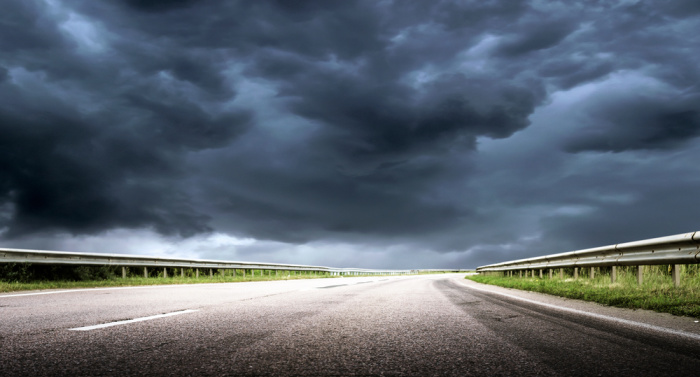

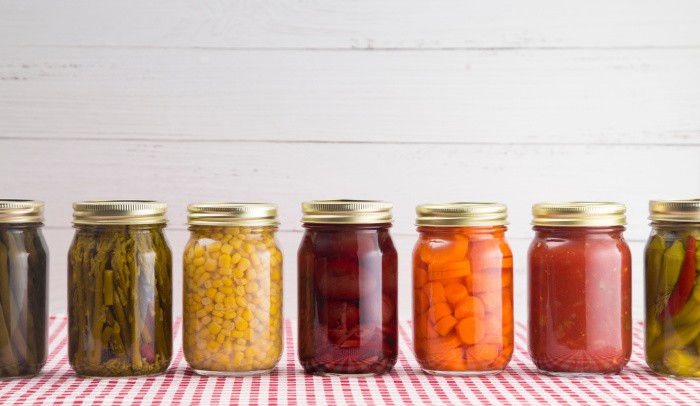

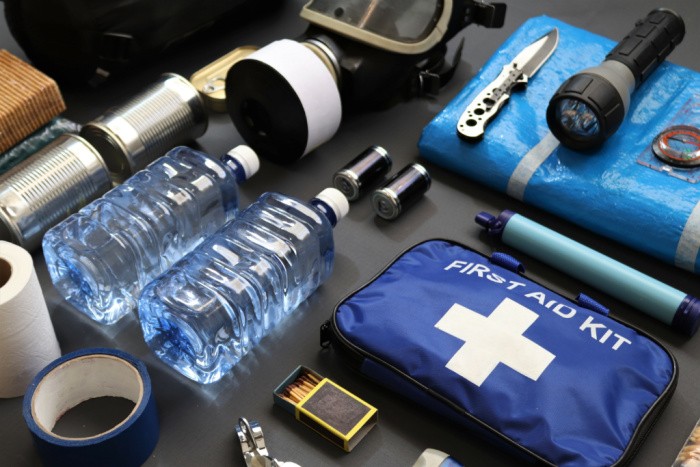
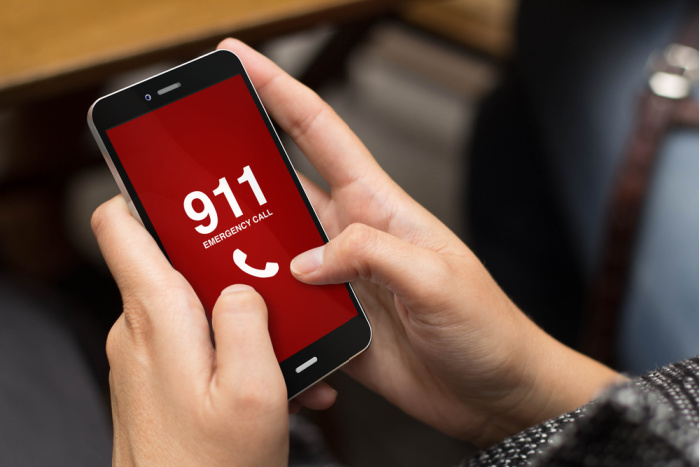





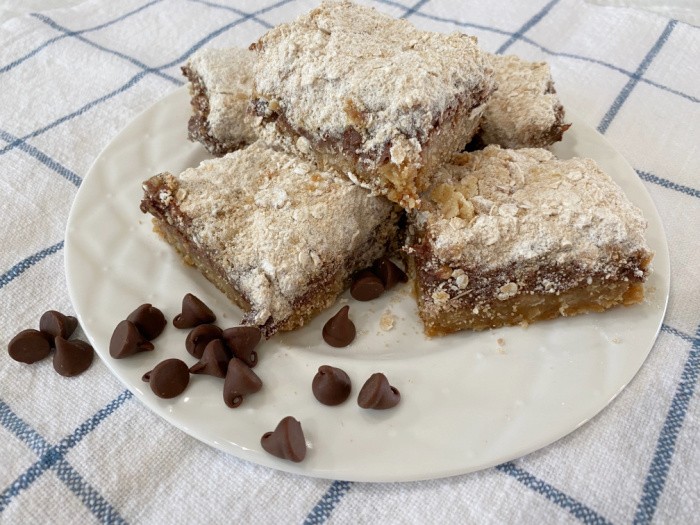
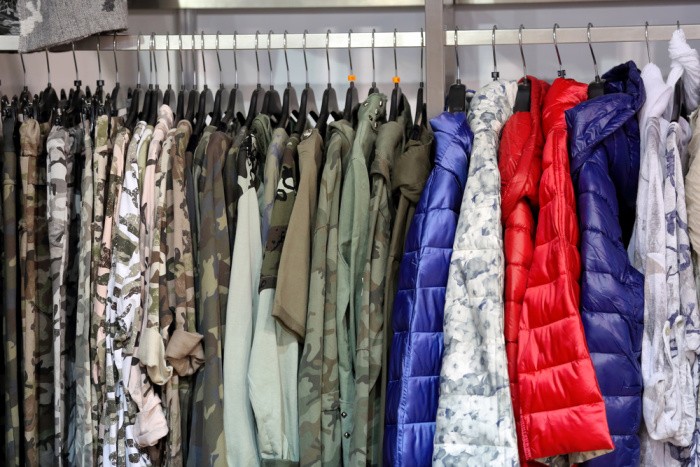

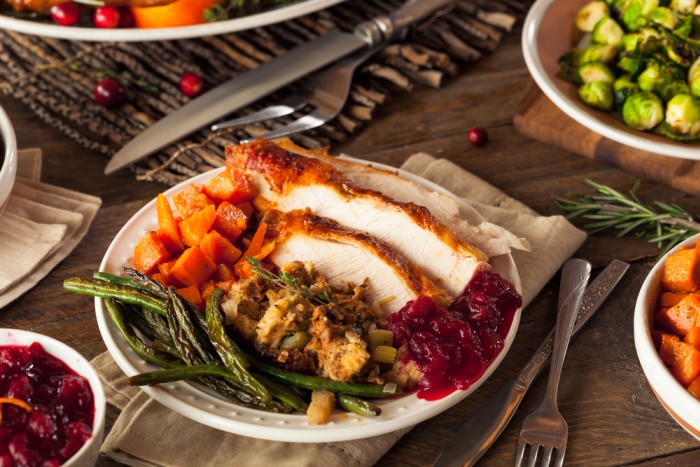

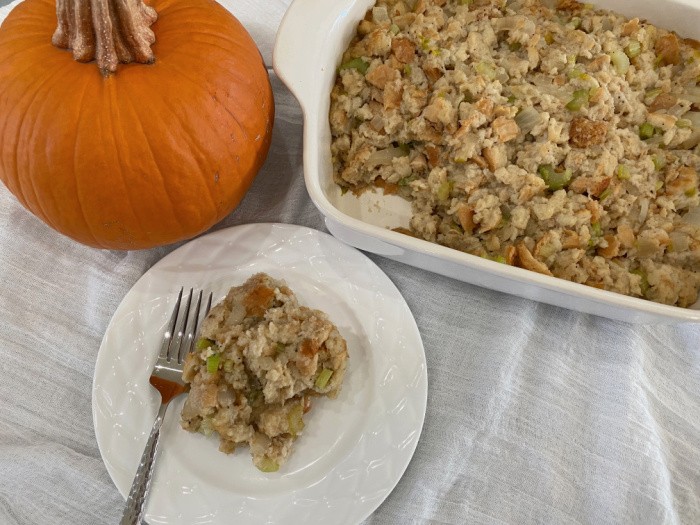

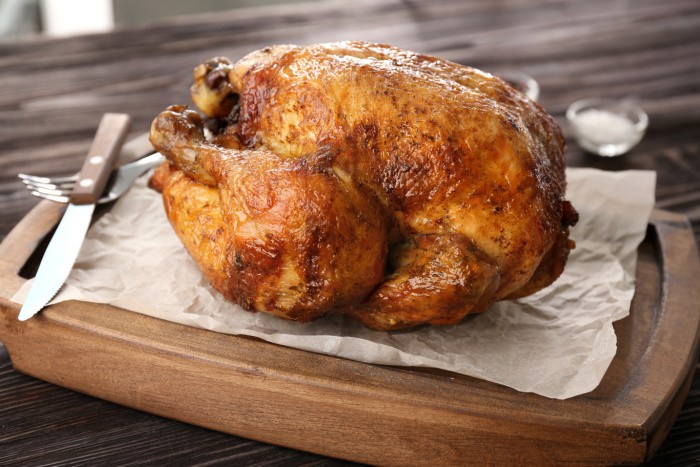


As we watch Tropical Storm Eta just a spinning off the southern coast of Florida before it heads our way in NW Florida by the weekend, this article is very timely!
For those using plywood to cover windows, look for Plylox clips. These clips speeds up the process of covering the windows. They really help simplify the window protection process on brick houses so there’s not so much need for masonry drill bits.
If time is short or the Plylox clips are not available, be sure to use screws not nails to fasten the plywood. We added a washer to each screw so that screw heads would not be pulled through the hole whenever we used plywood for shutters.
Hi BDN, wow, I’m hoping all is well where you live this weekend. Crazy weather! Stay safe, Linda
We’re as ready as can be. Not expecting Eta to be more than a rainmaker, but keeping a close watch in case it ramps back up to hurricane status. .. No one knows where any hurricane is going for sure, especially those slow moving storms that wander all around.
Everyone along the Gulf is ready for this hurricane season to be done. 30 total named storms so far this year.
Unfortunately, we have Eta & a new system that’s forming & expected to develop over the weekend.
Pray for the folks in Louisiana and Mississippi who have so far had 4 landfalling systems hit in 8 weeks. … One of our Sunday school classmates is crew chief with the local power company. He and his crews have been sent to Iowa to restore power after the Derecho winds, Louisiana & Mississippi for Hurricanes Louise, Sally, Delta; Alabama for Hurricane Zeta.
Hi BDN, wow, we will pray for all involved in pre-disaster and all families and first responders. They are real heroes who risk their lives to get our power up and running again. I’m praying all is well where you live. Linda
Correction on my comment, Linda… we have had 29 total named storms in the Atlantic/Caribbean/Gulf hurricane season so far…. potential storm #30 is just forming.
And as of this morning, Eta’s path has shifted significantly to the east & is predicted to make landfall tonight or early Thursday along the west coast of Florida.
Hi BDN, whatever the number you have had way too many my friend!! Stay safe, praying for you! Linda
Insurance in hurricane zones is a lot different. We have Homeowners, flood, and wind policies. We have a stilt house, so can’t make a flood claim unless the water gets into our living area, which is elevation 24′. Hurricane Ian had a 16′ storm surge which translates into a foot of water under our house, but most of our neighbors had 5 1/2′. Our slab is higher. We watched the flood waters come in 4 times in the last 3 years. Interesting to watch waves of a couple of feet on the street in front of your house. It’s complicated if you aren’t familiar with the lingo regarding elevation and storm surge heights. We still have flood insurance because if you don’t have wind and flood, each insurance company will blame it on the one you don’t have. Our insurance isn’t too bad because we have an ICF Cat 6 rated house. Yes, there is such a thing now. Storms are never categorized as 5 until after it is too late to make a claim. There is some clause that means the insurance company has to pay more if it is a 5.
Tempered glass might have been ok back in the day, but now you either have good shutters or impact windows. If you don’t have one or the other, good luck with insurance! Best have a metal roof or proof that your shingle roof isn’t very old – and your roof has to meet strapping standards.
We know many people here who have ground level homes in the flood plane and their flood insurance alone is $10,000. Flood insurance is limited to $250,000. If you want more, then it’s a lot more on top of the Fed policy. That doesn’t include wind and home owners.
Insurance companies have inspectors who check homes prior to insuring and every few years after you get your policy. If you have a mortgage, you have no option. Your insurance bill is part of your mortgage payment.
Evacuation is complicated. Best go days early. The highways are full stop, no gas and no place to go unless you already have a place.
We don’t have looters where we live. They will be shot. It’s legal to shoot them. As one sheriff said “graveyard dead.”
We’ve been in at least 25 hurricanes. 3 of them were cat 5. I worked out in Hurricane Andrew- Cat 5- as a police officer in Miami-Dade.
Preps are pretty much the same as for any disaster. You have covered that so very well over the years.
I’ll take a hurricane over wildfires or flooding like in Texas! We can plan and prep.
Hi CAddison, great comment, I always learn something new from you every time. Harry told me today it’s still raining hard in Texas, wow, those people need a break. Rain with flooding is so bad. You have been through 25 hurricanes, 3 of them were cat 5. Flood insurance limited to $250,000.00 is nothing these days. Most homes in Utah are over a million dollars. Our grand kids will never own homes, the prices keep rising. My sister had a home built on stilts in San Rafael, California. I hadn’t heard that term in years. I agree preps are pretty much the same for all disasters. Thank you again for your service as a police officer. The term graveyard dead, I heard that on Instagram from a Police Chief today on Instagram. He also said something like, you mess with our officers your family can pick up your remains. I doubt the criminals were listening. Stay safe, Linda
Luckily, we live pretty far inland, so we don’t have to worry about hurricanes. Just tornados. They can be pretty bad though. Your information is good for all storms of any kind. Love me some Linda from foodstoragemom.com!
Hi Deborah, you made me day, love me some Deborah!! I’m glad you are inland but hurricanes are bad as well. Thank you for your kind words and friendship, Linda